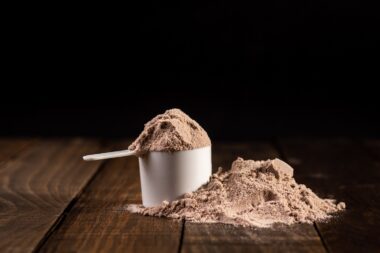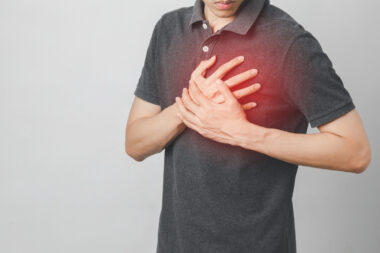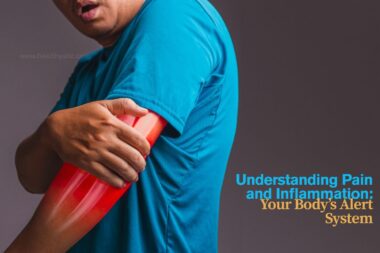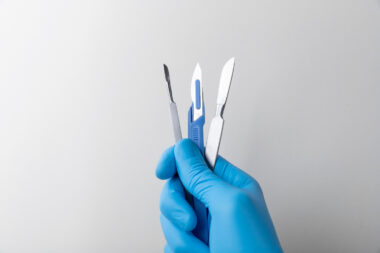Erectile Dysfunction (ED) affects 35 million men in the US alone, and can have a devastating impact on quality of life and relationships, but most men don’t really understand the causes.
Erectile Dysfunction is not a disease. It’s not caused by a bacteria or virus. It’s a symptom of an underlying medical problem, which may be physical or psychological. The most common cause of ED, especially among older men, is a cardiovascular problem. But even things like sleep patterns and dental hygiene have been shown to affect the likelihood of ED!
While there are many possible causes of erectile dysfunction, men can significantly reduce their risk of ED by taking care of their health.
Switch to a Heart-Healthy Diet
A heart-healthy Mediterranean diet can play an important role in reducing the risk of erectile dysfunction.
A 2017 review of four studies found that adherence to a Mediterranean diet contributes to preventing ED through an improved lipid and glucose metabolism, increased antioxidant defenses, and increased arginine levels which could raise nitric oxide activity.
A 2020 study of over 2,000 men found that “men with the greatest adherence to a Mediterranean or AHEI-2010 dietary pattern were least likely to develop erectile dysfunction.”
The basics of the Mediterranean diet are simple:
- Build your meals around plant-based foods like fruits, vegetables, and whole grains such as bread, pasta, and cereals. Opt for nutrient-rich choices like:
-
- Leafy greens such as spinach, kale, and collard greens, along with broccoli and carrots.
- Tomatoes and avocados.
- Legumes like kidney beans, lentils, chickpeas, black-eyed peas, and lima beans.
- Sweet potatoes or yams.
- Keep meat portions modest, around 4 ounces (similar to the size of a deck of playing cards). Swap out red meat for fish or poultry, aiming for fish at least twice weekly and red meat no more than once a week. Steer clear of fatty meats like sausage and bacon.
- For snacks, go for small portions of nuts such as almonds, cashews, pistachios, walnuts, and pine nuts, or seeds like pumpkin seeds. Alternatively, enjoy vegetables or spread natural peanut butter or tahini on whole-grain crackers.
- Make the switch from butter or margarine to heart-healthy olive oil or canola oil. Opt for low-fat dairy options like skim milk, fat-free yogurt, and reduced-fat cheese.
- Season your meals with herbs and spices instead of salt to cut down on sodium intake, which is crucial for managing blood pressure and heart health. While the USDA suggests consuming less than 2,300 mg of sodium per day, the average American exceeds 3,400 mg.
Exercise
Studies have also shown the regular aerobic exercise to contribute to a reduction in the incidence of erectile dysfunction.
Aerobic exercises enhance cardiovascular fitness by utilizing oxygen to fuel muscle movement. Examples of such exercises include swimming, cycling, rowing, running, walking, or utilizing an elliptical trainer.
The American Heart Association recommends engaging in at least 30 minutes of aerobic exercise 5 to 7 days a week. Be sure to incorporate warm-up, cool-down, and stretching exercises into your aerobic session.
If you’re new to regular exercise, consult your physician to confirm your heart’s condition and to develop a tailored exercise plan that suits your needs.
Get Enough Sleep
Insufficient sleep is another lifestyle element that may increase the risk of erectile dysfunction.
While the precise role of sleep isn’t well understood, evidence suggests that inadequate sleep duration increases the risk of various ailments, including cardiovascular and metabolic conditions. A growing body of research shows an association between sleep disorders and erectile dysfunction.
The link between sleep and erectile dysfunction may be explained by the fact that lack of sleep can reduce testosterone levels. One study found that skipping sleep reduces a young man’s testosterone levels by the same amount as aging 10 to 15 years.
Reduce Alcohol Consumption
Another way to lower your risk of erectile dysfunction is to lower your alcohol consumption. Drink alcohol only in moderation, or not at all. A review of 46 studies, conducted in 2021, found a significant association between regular alcohol consumption and ED.
And Don’t Smoke or Vape!
There is also overwhelming evidence in the literature to support the claim that smoking worsens erectile function by effecting on vascular health. A 2015 review found that smoking increased the odds of erectile dysfunction, and that the risk increased depending on the amount smoked, and the duration of the smoking habit.
Vaping is often promoted as a way to stop smoking, but studies have also found the electronic nicotine delivery systems (vape-pens) increase the risk of erectile dysfunction. A 2021 study found that those who used e-cigarettes were 2.4 times more likely to experience ED than non-smokers.
Finally, Brush Your Teeth!
Several studies have found a link between dental hygiene, specifically periodontal disease, and erectile dysfunction.
A 2018 study from the University of Granada (UGR) in Spain found a correlation between periodontal disease and erectile dysfunction.
The researchers found that 74 percent of patients with ED showed signs of periodontitis. Those with the most severe ED presented the worst periodontal damage, while sufferers of periodontitis were 2.28 times more likely to present ED than patients with healthy gums. It is possible that the bacteria linked with periodontal disease could enter the bloodstream and cause inflammation in the blood vessels, resulting in ED.
Reduce Stress
Not all causes of erectile dysfunction are physical. Psychological factors, including stress, can also cause ED.
A 2014 study found that reducing and managing stress can significantly reduce the risk of erectile dysfunction.
Conclusions
There are many things that can cause erectile dysfunction, but some of the primary causes are tied to cardiovascular and general health issues that respond well to lifestyle changes. The same advice that doctors have given patients for years can significantly reduce the risk of erectile dysfunction.
Image Credit: Freepik

Robert Nicholson is the owner and operator of the ED Treatment Information Center website (EDtreatment.info). He is also a lecturer at San Jose State University.





































